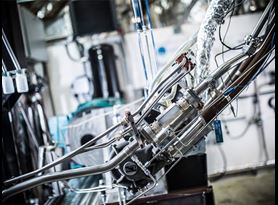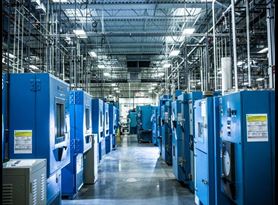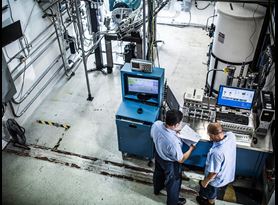Low lubricity is a fluids test for products and systems that contain moving parts. Used to determine the operational life of components, low lubricity testing focuses on the relationship between the age and temperature of fluid, and the mechanical wear of products in operation.Ь§
Why is low lubricity testing performed?
Like most fuels tests, Low lubricity testing is used to determine how test components function while operating in the worst case environment. As lubricating fluids are cycled over time, they become less effective at reducing friction between components, making wear and damage to parts increasingly likely. This results in reduced life span of products, and increased maintenance on engines and systems.
Ь§Low lubricity testing provides reliable predictions about how well a product can survive under the most taxing conditions. By performing operational cycles with specially conditioned fluids, we gain insights into product safety, maintenance requirements, and system longevity.
How is low lubricity testing performed?
We test for low lubricity of fluids per ASTM D5001 standards. To create the appropriate level of lubricity, we run the test fluid through custom-designed clay filters, which remove a variety of compounds from the samples. Depending on the test program, we can also create a high-temperature environment, which further decreases the fluid lubricity.Ь§
Using a Ball on Cylinder Lubricity Evaluator (BOCLE), we can quantify the lubricity value of the test fluid to ensure the properties are fit for test.Ь§ With the properly conditioned fluid, we run operational cycles on the test component while monitoring key performance characteristics and signs of degradation. Once an out of tolerance condition or unit failure occurs, the component can be broken down and inspected to find the most susceptible features.Ь§
АФУХ2023ШЋФъе§АцУтЗбзЪСЯтs unique capabilities
As a single-source provider of environmental and hydraulic and fuels testing, our lab can provide unique services for low lubricity testing. Our clay filters conditioning system and operational fluid systems are built in-house to manipulate lubricity levels for a range of test programs.Ь§
For custom projects, we can control both lubricity and temperature levels, and create automatic test systems capable of running for hundreds, or even thousands, of hours. Our test stands are built to provide extreme levels of temperature, complexity, and power, for even the largest projects.
Contact us today for more information about our low lubricity and fuel testing services
Ready to request a quote?
Our deliverable is certainty - high quality data, test reports and certificates that you can absolutely rely on when making decisions about your materials and compliance. Engage with an expert today.
Related Services

Fuel Systems
Find out how АФУХ2023ШЋФъе§АцУтЗбзЪСЯ's comprehensive fuel system testing programs simulate in-service conditions at our world-class testing facilities.

Hydraulics & Pneumatics
Find out how АФУХ2023ШЋФъе§АцУтЗбзЪСЯ tests hydraulic and pneumatic based fluid power systems for the global Aerospace sector.

Climatics and Environmental Simulation
АФУХ2023ШЋФъе§АцУтЗбзЪСЯ can provide you with critically important data on your product or part's performance in response to typical or extreme environmental conditions.

АФУХ2023ШЋФъе§АцУтЗбзЪСЯ Jupiter
For over 30 years, АФУХ2023ШЋФъе§АцУтЗбзЪСЯ Jupiter has been the go-to lab for challenging engineering projects for key Prime partners
Other Product Qualification Testing Services

